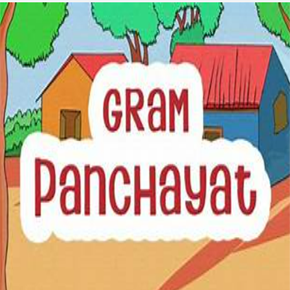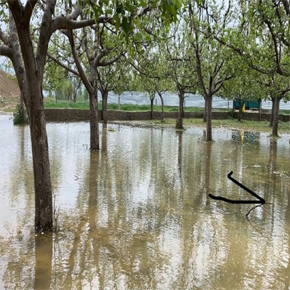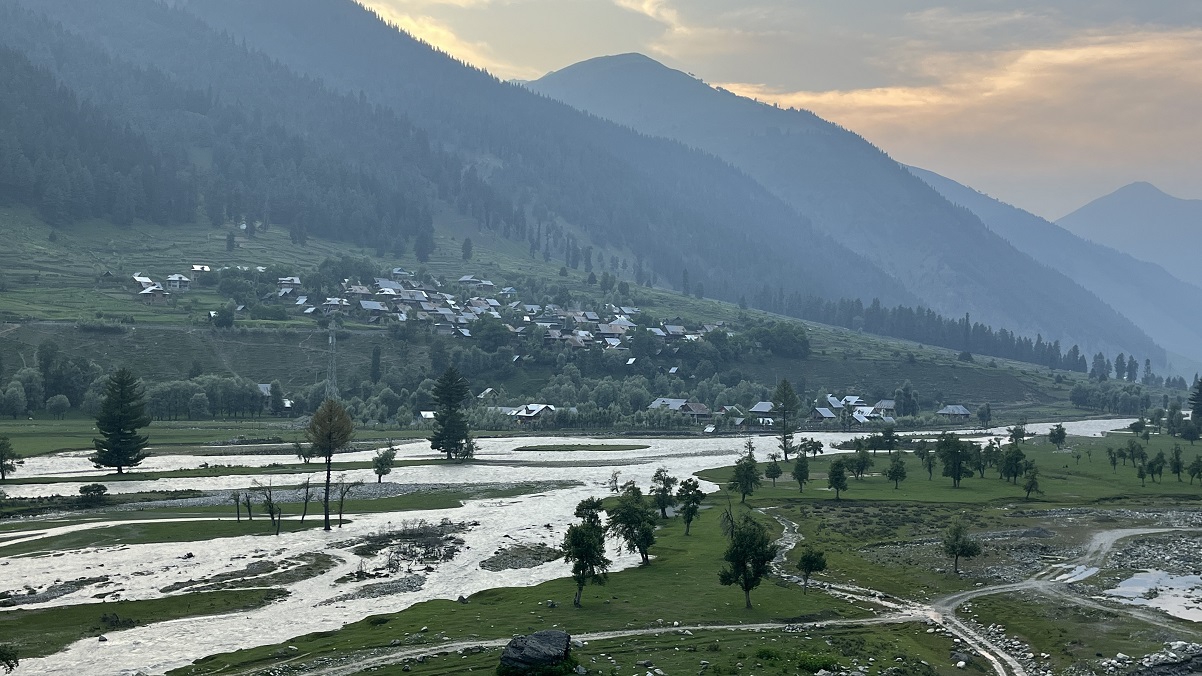Srinagar: Recently, the Ministry of Housing and Urban Affairs completed the Swachh Survekshan 2022 survey which is a Sanitation Survey conducted every year since 2016 in small and big cities across India. It is said that this Swachh Survekshan (sanitation survey) is the world’s largest survey conducted on the issue of cleanliness and sanitation conducted by the Government of India through its Swachh Bharat Mission (SBM) programme which was launched on October 2nd 2014 by Prime Minister Narendra Modi. This survey is an annual affair conducted since the 2016 wherein details of sanitation, cleanliness and hygiene are collected in cities and towns across India.
This year, the President of India, Droupadi Murmu, on the eve of Gandhi Jayanti (October 2nd 2022 ) announced the results of Swachh Survekshan’s 7th edition and Swachh Survekshan Ranking List 2022. Indore city in Madhya Pradesh topped the list for the 6th time.
Swachh Survekeshan was launched as part of the Swachh Bharat Mission (SBM) which was basically aimed at making India open-defecation free and make India clean and free of open defecation by 2nd October 2019.
As mentioned above, Indore has again been ranked as the cleanest city of India for the 6th consecutive time and it is the first 7 star garbage free city of the country. Surat in Gujrat is the second cleanest city followed by Navi Mumbai,Vishakapatnaum, Vijayawada and Bhopal. Srinagar or Jammu cities don’t even figure among the list of 20 clean cities in India. This is really strange as nature had bestowed J&K with unmatched much beauty and one would have expected that such a state would naturally inspire civil habits. However, it’s a disaster in the shape of waste which has made us unclean and unhygienic.
Open Defecation not a challenge in J&K
India’s urban population has sharply increased. This massive growth, along with high economic growth, has resulted in severe challenges for Urban India, in terms of addressing the incremental infrastructural needs of a fast-growing urban population. One of the major challenges arising out of increased migration of the populace from rural areas to cities and towns in search of an improved quality of life has been the issue of access to sanitary facilities, and the attendant menace of open defecation, especially in areas housing economically weaker sections of society, where open defecation spots are more likely to be found.
The Swachh Bharat Mission (Urban) aimed to fulfill the objective of 100% Open Defecation Free status in all Urban Local Bodies in the country by October 2019. The target has almost been achieved. The Government has provided access to toilet facilities (i.e. construction of sanitary latrines – individual household toilets, community and public toilets) in towns , villages and cities but there are still many challenges across the country.
However, open Defecation was never a big challenge in Jammu & Kashmir. In-fact we are almost 100% open-defecation free (ODF). However, we have not gotten rid of unscientific waste management yet. This has been a larger challenge before us and is in fact a bigger challenge than open defecation.
Swachh Survekshan Grameen
Like the sanitation survey (Swachh Survekshan ) launched in 2016 for urban areas, Govt of India in 2018 launched a similar survey for Rural areas which is known as Swachh Survekshan Grameen. This survey assesses the state of hygiene, cleanliness and sanitation in rural India as a part of the Centre’s initiative to award open defecation free ODF plus status to villages. The ODF-plus status aims to ensure management of solid as well as liquid waste and is an upgradation of ODF status in which construction of adequate toilets was required so that people did not have to defecate in the open. As part of the 2021 rural cleanliness survey (Swachh Survekshan), as many as 17,475 villages spanning across 698 districts were covered. Following things are considered during the survey:
1. Direct Observation of sanitation at public places -30%
2. Citizen’s Feedback -35%
3. Service Level Progress on sanitation related parameters -35%
The Swachh Survekshan Gramin-2022 aimed to undertake ranking of States and Districts on the basis of their performance attained on key quantitative and qualitative Swachh Bharat Mission Grameen parameters. This survey is also meant to engage rural communities on the issues of sanitation and hygiene by undertaking a massive Information Education and Communication (IEC) campaign at panchayat level.
Recently, on October 2nd President Droupadi Murmu conferred the awards for Swachh Survekshan Grameen 2022. In the big states category, the first award for Swachh Survekshan Grameen was given to Telangana, second to Haryana and the third award was bagged by Tamil Nadu. In small states and UTs category, Andaman and Nicobar won the first award, Dadra and Nagar Haveli and Daman and Diu second and Sikkim got the third award. Jammu & Kashmir didn’t even figure in the small states or UT category list. This is quite disappointing.
The President also gave away the Functionality Assessment awards 2022 during the October 2nd function. These awards are given by the Ministry of Drinking Water and Sanitation after assessing the performance of local water utilities in the States and UTs. The functionality assessment exercise is taken up annually since 2018 by the Jal Jeevan Mission (JJM) to know about the status of service delivery of drinking water at individual household level. In this category, Puducherry bagged first award, Goa second and Tamil Nadu was given third award. J&K figures nowhere in this category as well.
Govt officers are Rule Breakers
Authorities at the helm are yet to set the right urban waste management system in Srinagar. We have even failed to create a scientific waste management site in Srinagar as the Achan Saidapora garbage dump site is overflowing with waste. The life of people living around Ali Jan road Srinagar from Eid Gah to Soura including Saidapora, Wanganpora, Zoonimar has become miserable and a pungent smell continues to be emitted from the garbage dump site of Achan Saidapora.
The Jammu & Kashmir cabinet on 23.10.2017 gave a nod for setting up of a waste to energy plant in Srinagar. The plant which was to be constructed under the public private partnership (PPP) at Achan Saidapora landfill site is supposed to generate 5 megawatt of electricity on a daily basis from 5 metric tons of solid waste. The company which was allotted the project had to invest Rs 120 crores and would thus get the ownership rights of this plant for a period of 25 years. The whole project was based on the build-own-operate and transfer model (BOOT). Till date we see no development on this. Nobody is even speaking about that project now and nobody is held accountable.
The Agriculture landholding in Kashmir has also come down drastically due to massive urbanisation. The shrinking farmlands will lead to food insecurity in the future and I explained this in detail during a workshop on Disaster Management at Kashmir University recently. The shrinking farmlands have a direct impact on management of solid waste. As the land is shrinking day by day, there are no open spaces to create scientific landfill sites across Jammu & Kashmir.
A Rural Waste Management programme had been launched recently in J&K but the technologies which are being put to use for creating compost pits are totally flawed and this author already exposed the same in Kashmir Observer’s weekly web series Inkishaf. Trash bins have been procured in huge numbers and placed in villages as well. They get filled with garbage but there is nobody to clear them.
Our Government departments, local bodies have themselves become the rule breakers as garbage dump sites have been created in every nook and corner of towns, citizens and villages. When the law enforcing agencies do all these criminal acts, what can we expect from citizens?
Conclusion
Even basic issues like sanitation and waste management are falling behind. Our cities, towns and villages could have been ranked among the first ten across the country as we had no open defecation issue and that would have fetched us good points at national level surveys in urban and rural areas. I believe the Govt officials have not been able to highlight this before surveying teams.
It is a matter of concern that a beautiful city like Srinagar couldn’t be one of the 20 cleanest cities in India as per the last 8 Swachh Survekshan surveys. Jammu & Kashmir, which was one of the cleanest states in India more than 40 years back , is now a filthy and unclean place.
The government needs to take this issue very seriously and they must grill the administration over the disappointing performance of J&K in Swachh Survekshan.

























































































